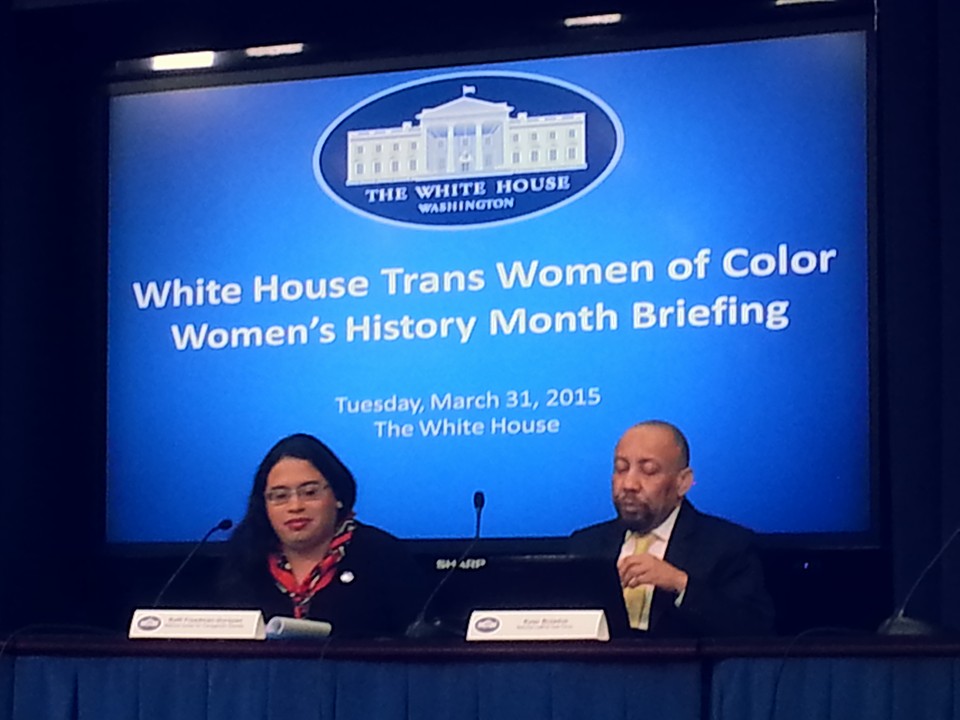Historic White House Briefing on Trans Women of Color Marks Trans Day of Visibility

In a historic White House briefing today, over 50 transgender women of color gathered to celebrate Women’s History Month and simultaneously mark International Day of Transgender Visibility. Transgender women of color leaders and activists represented African American, Asian American, Latina, Native American, and immigrant communities across the nation. Organized by the White House and the National LGBTQ Task Force, this is the first time transgender women of color, which included National Center for Transgender Equality's Policy Advisor for the Racial and Economic Justice Initiative, have solely discussed their lives and experiences directly with administration officials.
The briefing comes in light of the seeming uptick in murders of transgender women over the past several years, and within a national political climate intent on legislating away transgender people’s right to use the restroom or engage in school sports.
Thirty transgender women have lost their lives to violence over that past two years, many at the hands of an intimate partner. In the first months of 2015 alone, eight transgender women were brutally murdered from Kentucky to California, to Florida. The majority were under the age of 30 and were of color. In addition, violent attacks and discrimination continues to plague the lives of transgender people across the United States.
Panelists at the convening included Dr. Ayana Elliot from FNP, The Elliott Group, LLC, Bamby Salcedo from the Trans Latina Coalition, Cecilia Chung from Transgender Law Center, Kylar Broadus from the National LGBTQ Task Force, LaLa Zannell from the New York City Anti-Violence Project, Ruby Corado from Casa Ruby, Tracee McDaniel from Juxtaposed Center for Transformation, Inc., and Mattee Jim from the First Nations Community HealthSource . Together, they offered recommendations on how the federal government and community partners should respond to violence addressing not only the incidents of physical violence, but also the systemic barriers and discrimination transgender women face in their daily lives.
“Gandhi once said, ‘Poverty is the worst form of violence,’” said Raffi as she offered her recommendations for a federal response. “Any solution to this crisis must be rooted in combating poverty, hunger, racism, and other social injustices that continue to hinder the advancement of transgender women as equal members of our society.”
Freedman-Gurspan called on the Administration to develop a national action plan on transgender women, addressing discrimination and violence, housing insecurity and homelessness, unemployment and economic empowerment, health care and mental health/substance abuse care, and criminal justice reforms important to the trans women, especially those of color. In addition, she recommended that the Department of Justice and FBI more vigorously track hate crimes committed against transgender women and that the communities traumatized by sustained violence should be connected with the Community Relations Service and other entities that work with communities affected by hate violence.
If you or someone you know has faced violence or discrimination in any area of life, please contact the US Commission on Civil Rights which is accepting public comments and personal stories about transgender experiences until April 14, 2015.

